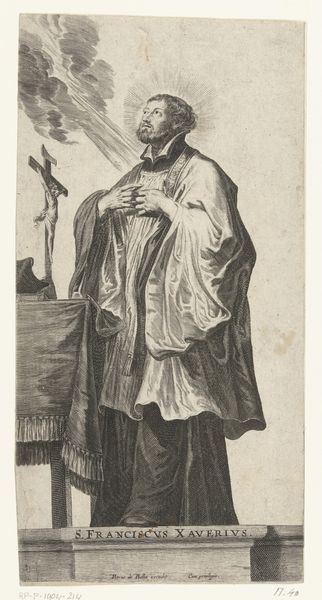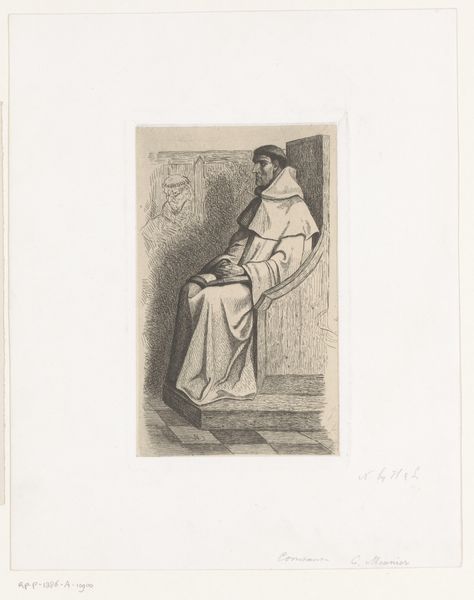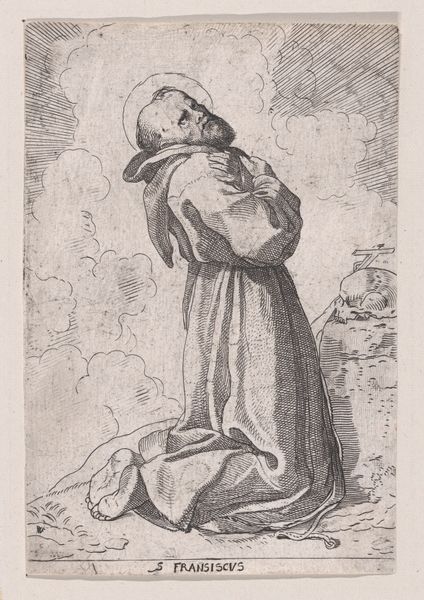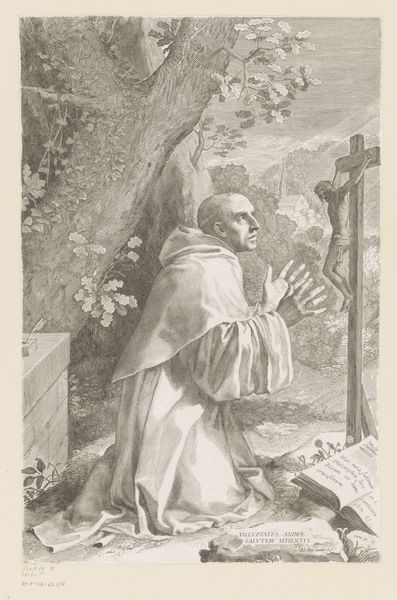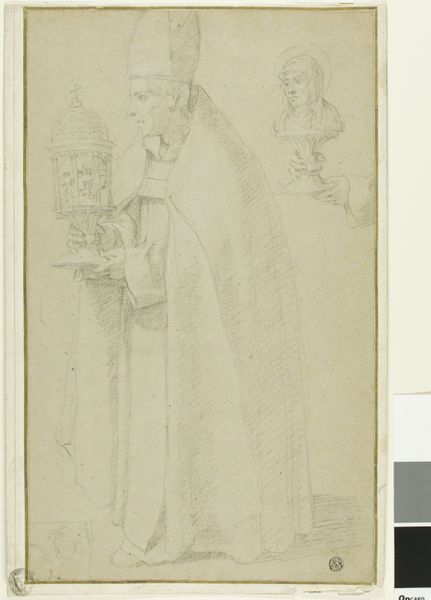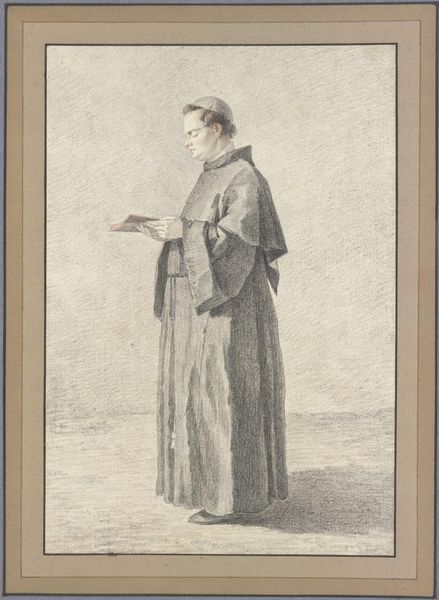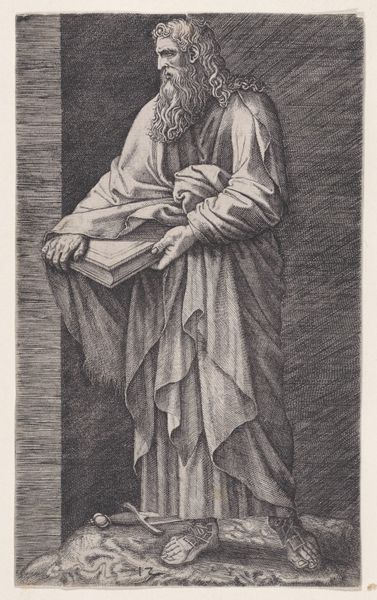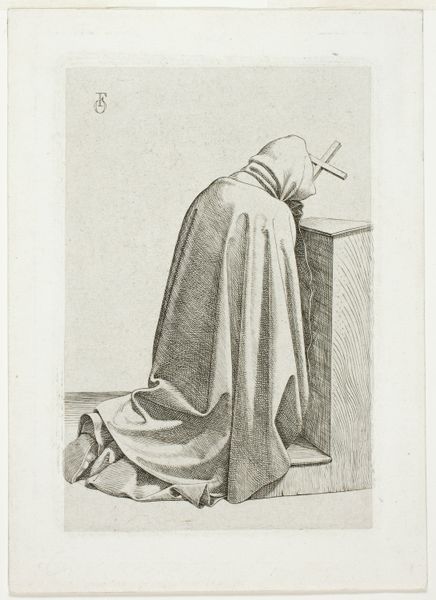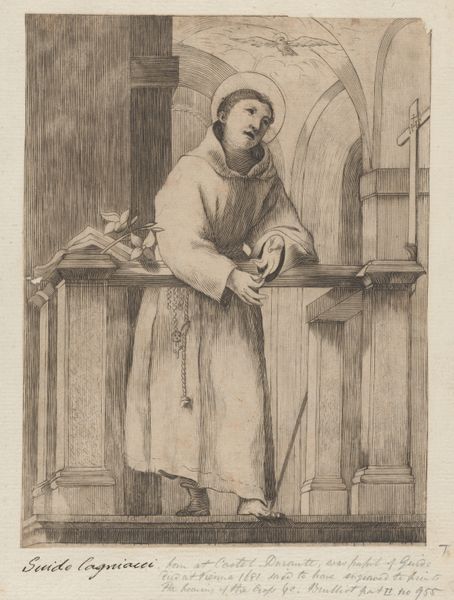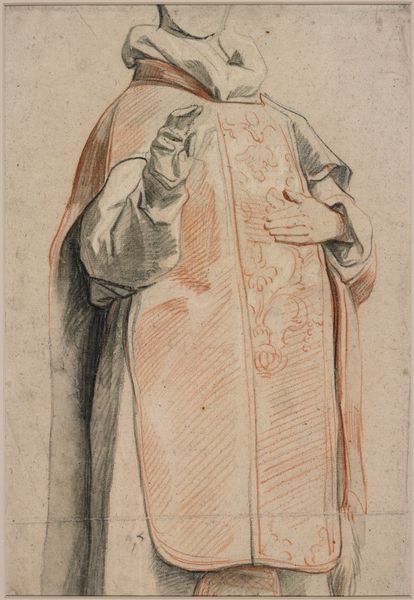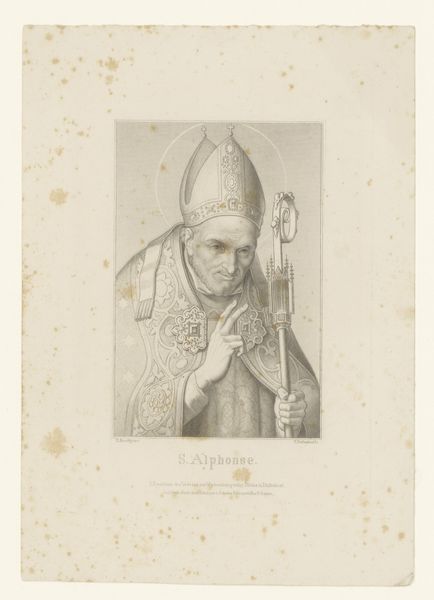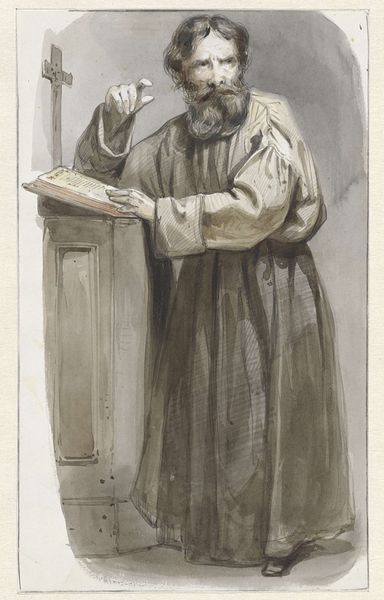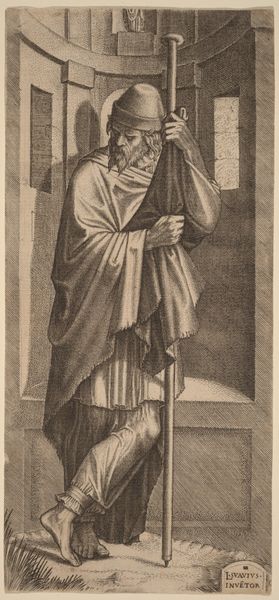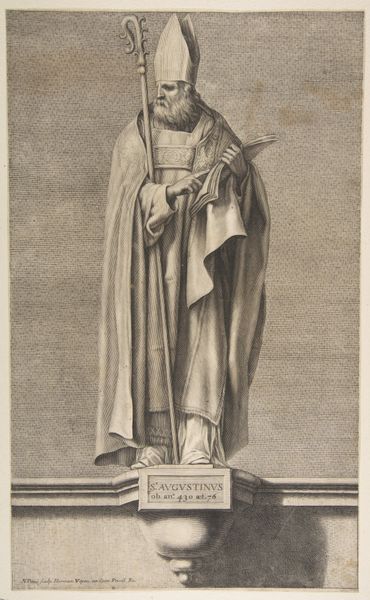
drawing, ink, engraving
#
portrait
#
drawing
#
old engraving style
#
ink
#
genre-painting
#
engraving
#
realism
Dimensions: height 216 mm, width 138 mm
Copyright: Rijks Museum: Open Domain
Auguste Danse made this print of a monk with etching and graphite around 1865. The etched lines create a sense of depth and texture, particularly in the monk's robes and the wooden chair. But it's not just the image, it's also the process of printmaking that gives this work meaning. The controlled, repetitive action of etching, where the artist protects the plate with wax, scratches lines into it, and then bathes the plate in acid. Consider the labour and time that was involved in creating this image, and the relative ease with which it can be reproduced. The print operates in a world of mass production and circulation, making it accessible to a wider audience than a unique painting. The use of etching and graphite, techniques that bridge the gap between meticulous craftsmanship and mechanical reproduction, reflects the changing landscape of art in the 19th century. It really invites us to consider the social and economic factors that shape artistic practice.
Comments
No comments
Be the first to comment and join the conversation on the ultimate creative platform.
